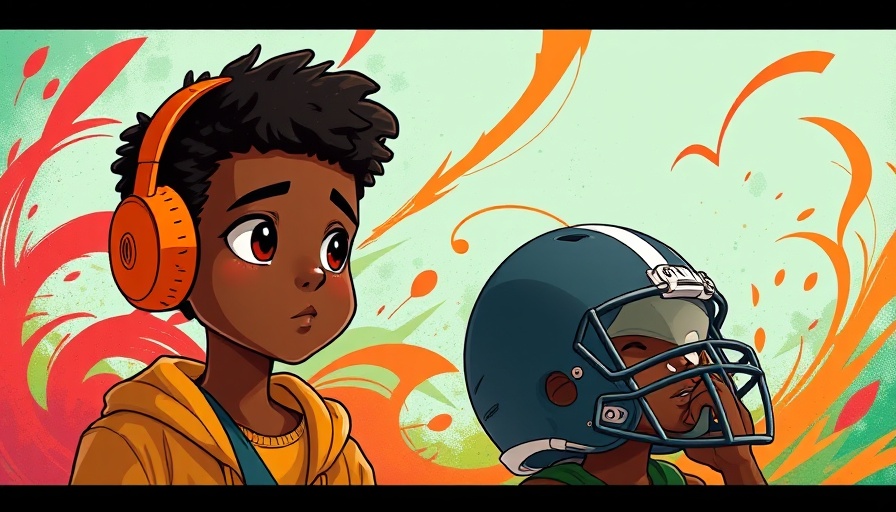
Understanding the Intersection of Identity and Autistic Experience
The novel All the Noise at Once taps into a nuanced and vital conversation, portraying the unique challenges faced by Aiden, a young Black autistic boy. His journey of self-discovery underscores the necessity of understanding how autism and racial identity intersect, especially under the shadows of societal prejudices. As Aiden navigates the complexities of growing up Black and autistic, the narrative reveals a reality often overlooked: the dual burdens of behavioral expectations and racial profiling.
Breaking Down Stereotypes: The Power of Autonomy
One of the most compelling aspects of Aiden's story is his realization about personal autonomy. Throughout the narrative, he evolves from being a passive character to one who actively asserts his choices. This transformation is crucial. Many young individuals, particularly those identified as neurodivergent, often grapple with others defining their capabilities. Aiden’s journey to agency invites readers to reflect on the broader implications of autonomy for autistic youth, emphasizing that respect for personal decisions contributes to a healthier self-identity.
Empathy in Imperfection: The Human Story Behind the Struggle
As Aiden interacts with various characters—each imperfect yet relatable—the novel invites empathy, bridging the gap between understanding and judgment. This approach fosters a richer exploration of family dynamics, societal expectations, and the struggles that come with being different. By showcasing the reasons behind characters' actions, Davis crafts a narrative that compels readers to engage in deeper conversations about race, neurodiversity, and compassion.
Racism and Ableism: An Urgent Dialogue
The themes of racism and ableism are intricately woven into Aiden's experiences, reflecting the systemic issues pervasive in society. These social dynamics become particularly poignant in the wake of an incident involving Aiden’s brother Brandon and police brutality, highlighting the urgent discussions necessary around race and authority. It serves as a pressing reminder of the intersections that many individuals face, and the importance of advocacy and awareness in creating more equitable systems.
Reflections on Modern Society and Future Possibilities
Looking forward, All the Noise at Once not only tells Aiden's story but hints at a larger movement towards societal change. As teachers, educators, and allies, it’s essential to incorporate such narratives into our discussions around neurodiversity and racial justice. By amplifying voices like Aiden's, we pave the way for more inclusive environments where all students can thrive without being defined by their challenges.
This combination of candid storytelling and insightful commentary in DeAndra Davis’s work makes it an essential read for anyone engaged in conversations about youth, race, and neurodiversity. Engaging with these themes not only enhances empathy but also fosters an understanding necessary for real-world advocacy.
As educators and leaders in the community, let us strive to build supportive environments that recognize the complex layers of identity in our students. Encouraging open discussions around these topics can empower young individuals like Aiden and remind us all to recognize the beauty of our differences.
 Add Row
Add Row  Add
Add 




 Add Row
Add Row  Add
Add 

Write A Comment